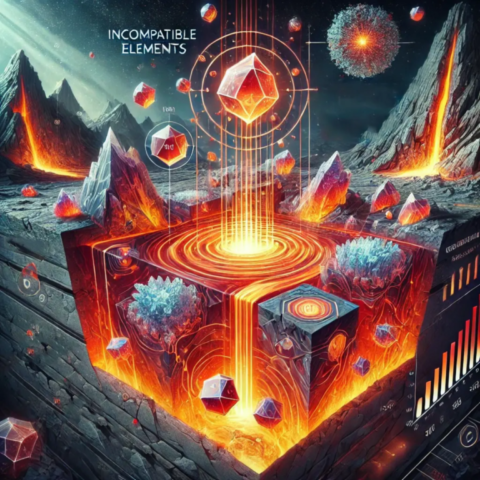What does incompatible mean in geochemistry ?
BORNET Rémi (2025)
Incompatible : definition
In geology, the term "incompatible" refers to chemical elements or mineral phases that do not readily integrate into the crystal structure of minerals during the solidification of a magma. These elements or phases tend to remain in the magmatic fluid rather than concentrating in the minerals that crystallize from that magma.
Characteristics of incompatible elements :
- Chemical behavior : Incompatible elements typically have large ionic radii or unusual electrical charges, making them difficult to integrate into the crystal structures of common minerals.
- Magmatic fractionation : During magmatic differentiation, incompatible elements concentrate in residual magmas, which can enrich the latter in certain specific elements.
Examples of incompatible elements :
- Large Ion Lithophile Elements (LILE) such as rubidium (Rb), cesium (Cs), strontium (Sr), and barium (Ba).
- Light Rare Earth Elements (LREE) such as lanthanum (La) and cerium (Ce).
- Highly charged elements such as uranium (U) and thorium (Th).
Incompatible elements are generally concentrated in the last magmatic juices to form rare minerals : beryls, tourmalines, rare earth minerals, etc...

